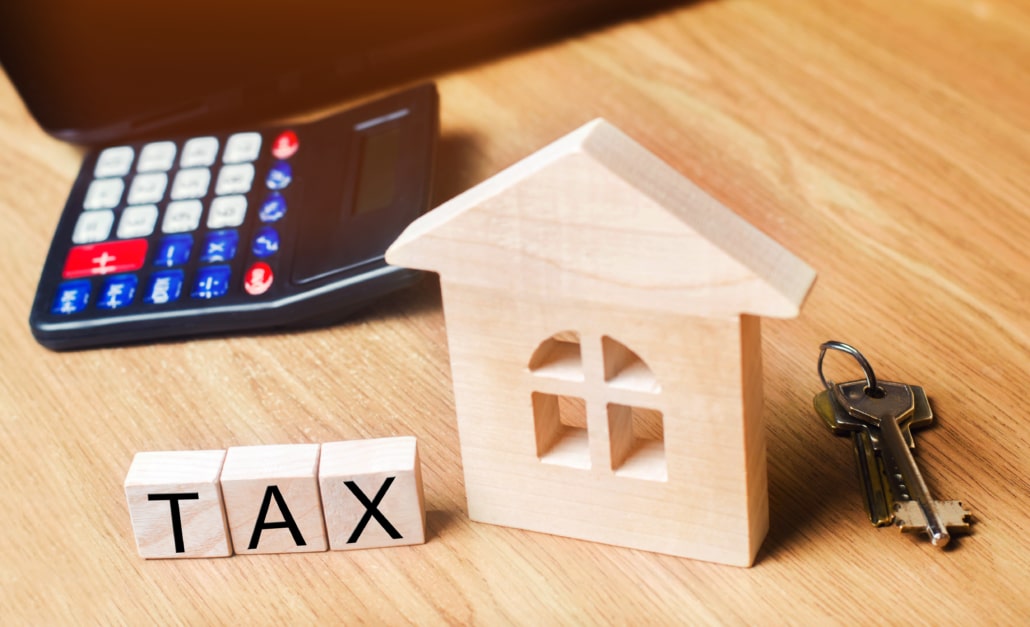Let’s talk about something rather annoying, but that you need to think about when considering a property purchase: taxation! What are the taxes on property in France?
Unfortunately, like it is the case in most other countries, you will be taxed when you acquire the property, if and when you let the property and when you sell the property.
What are the taxes on property in France?
What taxes will you pay when you acquire a property in France?
Your first tax step will take place with your notary, on the day of your purchase.
Transfer tax
On that day, you’ll pay the notary the purchase price of the apartment, but you’ll also pay a tax: this is the transfer tax.
These costs, which are mainly for the public treasury, are calculated according to the type of property, its location and characteristics, and your method of financing.
On average, for the purchase of an older property, the transfer costs amount to 7.5% of the sale price, whereas, for a new property, the transfer costs are 3%.
The same rate applies to properties bought off-plan, if the first resale occurs within 5 years.
Possible deductions
It is possible to reduce the total amount of the transfer costs by deducting the value of the furniture, such as kitchen equipment for example, upon presentation of supporting documents.
But be careful, deducting the agency fees is now regarded as tax evasion!
Property tax
Once you are a home-owner, you will be liable for property tax. Indeed, when signing the deed of sale with your notary, you will pay it on a pro rata basis for the current year, and then annually to the tax authorities. This is a local tax for the commune or the department. This tax includes the household waste tax, which is passed on to the tenant.
Housing tax
The Housing tax is also a local tax, intended for the commune. It is due in full by the occupant of the dwelling on 1 January for the calendar year. It includes the contribution to public broadcasting.
Since 2018, a new system has been put in place to gradually phase out 80% of the population from having to pay this tax.
You can already benefit from an abatement or relief depending on your lifestyle or the condition of your resources.
What taxes will you pay when you let your property?
If and when you decide to let your property, you must declare your rental income. The taxation depends on the type of rental: empty or furnished.
Empty rental
If you rent out your apartment without any furniture, your rental income is to be declared with your other income in the “property income” category.
The land tenure regime
If your gross rental income is less than €15,000 a year, you will depend on the so-called “land tenure” regime. In this case, you get an automatic 30% flat abatement. Your property income is added to your other revenues for the purpose of income tax and social security contributions, without any additional declarations to be made.
The direct tax regime
If your gross rental income is greater than €15,000, or if you choose not to opt for the “land tenure” regime, you must file an independent property income return, the so-called “direct tax regime”. Your declared income then corresponds to the difference between the amount of revenue collected and the total actual expenses deductible, upon presentation of supporting documents. You can deduct administration and management fees, some works, taxes, insurance premiums, provisions for co-ownership fees and loan interest.
Furnished letting
Since September 2015, an apartment is considered as furnished if it includes at least the items of furniture as listed by decree: a bed, duvet, curtains, hotplates, oven or microwave oven, refrigerator with freezer space, crockery for meals, cooking utensils, a table, chairs, storage shelves, lighting fixtures and suitable housekeeping equipment for the characteristics of the dwelling.
In terms of taxation, a furnished rental is considered as a provision of services. It is therefore necessary to file an independent tax return for “business profits” (BIC).
The micro BIC regime
If your property income from furnished rentals is less than €70,000 in revenue per year, you may benefit from the micro regime.
That is to say that you declare everything you have received: rents, the charges invoiced to the tenant and the provisions for fees. An automatic 50% flat abatement applies.
The direct tax regime
If you hold your property in joint ownership, if you wish to deduct the exact amount of your expenses or amortise your property, or if your property income exceeds the limits for applying the micro BIC regime, then the direct tax regime will apply.
The direct tax regime involves keeping accounts in accordance with the French Commercial Code and the general accounting plan. It is recommended to seek professional assistance.
Non-professionals who let a furnished property
If your annual income does not exceed €23,000 or other income from your tax home, then you can be considered as a “non-professional ” landlord who lets a furnished property.
Activity as a non-professional landlord letting a furnished property requires you to register the Registry of the Commercial Court, in order to declare the activity and obtain a SIRET number.
Income from non-professional furnished lettings, declared according to the micro regime or the direct tax regime, will automatically be subject to social security contributions. You are also liable for a Property Investment Contribution and, depending on your situation, the contribution on the added value of companies and VAT.
Warning : furnished lettings are to be avoided if the property is held by a non-trading family real estate company subject to income tax. As a matter of fact, this activity is considered as a commercial activity. The non-trading real estate company will then be automatically subject to corporation tax. To avoid this nasty surprise, always let the property out empty if it is held by a non-trading real estate company.
Micro-dwellings
There is an annual tax sanctioning high rents for micro-dwellings with a living area of less than 14m²
This tax concerns dwellings located in so-called “tense” areas where there is an imbalance between supply and demand in the property market; like in Paris for example.
This applies to all types of lettings (empty or furnished) of more than 9 months.
A rent is considered high if the amount of the monthly rent, excluding charges, exceeds €41.64 per m² (reference rent for 2017).
The tax is a percentage of the gross annual rent calculated according to the difference between the rent received and the reference rent.
What taxes will you pay when you sell your property?
Also bear in mind that when you sell your property, you will be subject to tax on capital gains (increase in value).
Until now the property constituting the principal residence of the seller is exempt from this tax.
Investing in bricks is a safe bet. This allows you to build your assets, which you can then sell to expand, rent out or pass on to your children. Don’t hesitate to contact French Touch for advice and assistance when you purchase your property.
CALL US ! WE TAKE CARE OF EVERYTHING !


